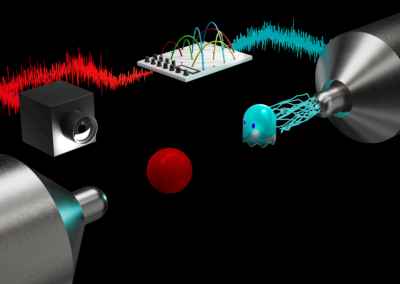“Miniaturized diagnostic tests can revolutionize the speed of diagnosing infectious diseases and hereditary ones such as haemophilia,” said Dr Joseph Ndieyira of UCL, senior author of a paper that has just been published in Nature Nanotechnology. Infections caused by HIV and bacteria affect many millions of people worldwide and remain major causes of mortality in adults and children. Antimicrobial resistance is now a global threat. It is clear that a major driver of antimicrobial resistance is excessive or inappropriate use of antibiotics. The efforts to control disease burdens particularly in resource limited countries has been hampered by lack of easily accessible sensitive diagnostics and monitoring facilities with simple to use integrated label–free multiplexed tests that can give rapid feedbacks on an infection and its status. In many situations, the main impediment to appropriate antibiotic prescribing is the lack of cheap and accurate point of care tests to diagnose infections. The inevitable time delay between tests, results and repeat appointments, can hinder public health efforts to tackle new threats.
This exciting study describes the creation of an ultrasensitive sensor based on cantilevers that would be capable of intelligent assessment of antibiotic efficacy, haemophilia and HIV infections within minutes. Dr Ndieyira and colleagues designed an array of tiny mechanical sensors, no wider than a human hair, coated with molecules similar to those found in bacterial cell walls, mini-antibodies raised against HIV glycoprotein envelopes and anti-clotting antibodies. When these arrays were exposed to vancomycin, HIV antigens or clotting factors, they caused alteration of surface properties, yielding cantilever deflection signals, like a diver on a diving board. Measuring the bend provided sensitive assays for HIV antigens, clotting factors and antibiotic efficacy. The researchers also developed a new way to immobilize membrane receptors such that they can function without blocking the underlying surface. This new method will open up a rapid point of care tests that can make a definitive diagnosis of infections, identify the resistance profile of causative organisms and make the tests suitable and cost effective for use in a primary care setup.



